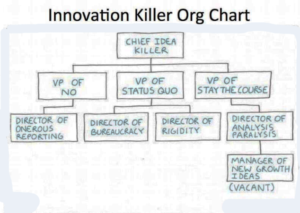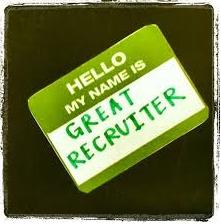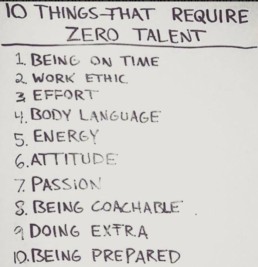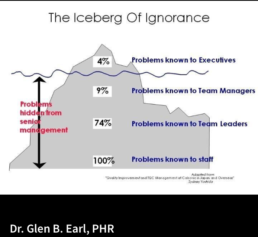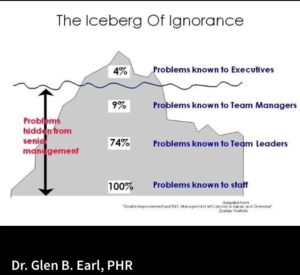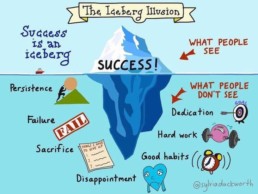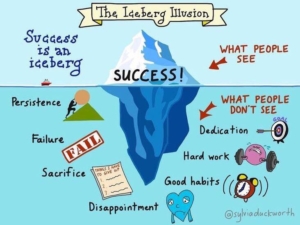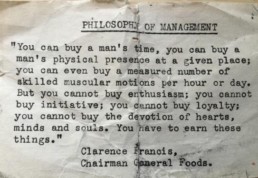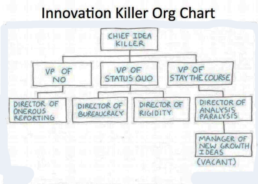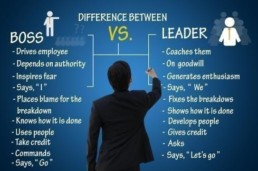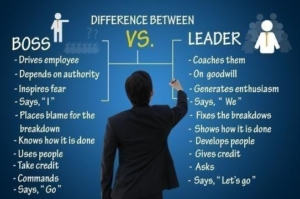The Bad and the Good: Questions that Can Hurt and Help Your Chances of Getting the Job/the Best Candidate!
The Bad and the Good:
Questions that Can Hurt and Help Your Chances of Getting the Job...
...or the Best Candidate!
By Peter Cotton, founder and president of Best Sales Talent, LLC
PART ONE:
Let's Get the Bad Ones Over With First: Never Ask These Questions or Do These Things During an Interview
When you've been in the recruiting business as long as I have, you're bound to get some pretty odd and unexpected feedback from candidates and clients about what went on during the job interview. You would think that people would be trying to put their best foot forward when interviewing - but sometimes they end up putting their foot in their mouth instead!
True or false: are these good questions to ask when interviewing at a company for the first time?
- What is the salary?
- What are the benefits?
- What is the vacation policy?
- How many personal days off will you give me?
- How long do I get for lunch?
- What does this company do?
- Why do you want references?
- What are the hours?
- Will I have to work long hours?
- Can I make personal calls and send personal emails during the day?
- Do you monitor emails or internet usage?
- Why on earth do you stay working here?
- Will I have my own office with a window?
- Are you expecting me to work in THAT office?!?
- ...And a quick story....I'll call it, "The Wife "Tag-a-Long": A candidate once came to my office to interview with me for a job I was seeking to fill with a client. He brought his wife along. I went to the lobby to great him and bring him to my office. He introduced me to his wife. After shaking hands, I told the candidate to follow me to my office (I had my back turned). I have two guest chairs in front of my desk. I sat down in my chair behind my desk, and when I looked across the desk, I saw that BOTH he and his wife were seated! I was really unsure of how to proceed at first, but started my interview. The wife interrupted and asked questions about the job. Needless to say, I ended the interview as gracefully as I could, telling the candidate he wasn’t qualified and ushered them out the door. I envisioned sending him out on an interview with my client, wife in tow. That wouldn’t have gone over well!
I hope you're with me when I tell you the above questions and scenario should NEVER be asked/done during the first job interview (and maybe not even the second or third - if you should get that far).
Now, it's not just candidates who can ask the wrong questions. A client/employer doing the actual interviewing doesn't always put his or her company in the best light, especially if they ask these questions:
- What is the speed of light? (This was just to throw him off.)
- What color are your eyes? (I found out later that the client didn’t trust anyone with brown eyes). It's just a bit wild to hear this since brown eyes are the MOST common in the world.)
- Do you plan to marry and have babies? (Totally illegal question, of course.)
- Can I take you out on a date? (This was after interviewing the candidate and disqualifying her for the job).
- ...And a quick story...I'll call it, "The 'Un-Sunny' Disposition": An employer interviewed a candidate in the morning at just the right time so that he sat at his desk with a window behind him and the sun shining through. He knew the sun would shine directly in the candidate's eyes, making a silhouette of the employer. The employer did this on purpose, because he enjoyed seeing how people reacted under stress during an interview.
PART TWO:
Now the Good Ones: Smart Questions to Ask During a Job Interview
Before you start thinking that the interview world out there is full of unfortunate mishaps and many people don't even know how to interview, I wanted to share an article that essentially outlines how to turn the table on the interviewer, so you really do put your best foot forward and give an excellent first impression. (I bolded the questions I got from the article and put my thoughts underneath each one).
- What do the day-to-day responsibilities of the role look like?
If you want to be happy in your job, you need to get a good nitty-gritty description of what you'll be in charge of and figure out if it comes close enough to fitting into your dream job scenario.
- What are the company’s values?
Does the company have a mission statement? Make sure you don't see it on the company website already!
- Dig deep to get more information on company culture.
This will give you an insider understanding of what makes the company tick, including what type of employees work there.
- What does success look like in this position, and how do you measure it?
What have others in this role accomplished? (If this is a position for which there are other people doing the same job, like a company with a good-sized sales force.) Also, what are the top sales people achieving?
- It’s crucial to have a deep understanding of how a company measures success. What are the key performance indicators (KPIs) for the role? How, and how often, are they measured?
If it is a sales role – what is the quota?
What were the sales in the territory the last 3 years and did my predecessor achieve quota? If not, why?
- With whom will I be working most closely?
Who will I report to? What does that person like about working here? What attracted that person to the company? What is his/her career path at the company and what will the career path be for the person you hire for the job I am interviewing for?
- What do you see as the most challenging aspect of this job?
What is the biggest challenge? What are the five most important things that MUST be done?
- Is there anything about my background or resume that makes you question whether I am a good fit for this role?
I always say this is a good way to close the interview: Is there anything about my background or experience that would preclude you from hiring me? (Get any objection out in the open and try to overcome it.)
For candidates who want to get more job interview coaching, please visit the Intervew Tips on my website. You'll be able to read about the type of questions to be prepared for. If you are being represented by me to a client employer, I will teach you about S-A-R (Situation, Action, Result) techniques and how to close for the job effectively.
As far as my recommendations for questions that the client should ask of the candidate, some of them are:
- What do you know about our company?
- What do you know about our business?
- Why are you interested in this company? How does it fit with your goals and aspirations?
- If you got the job how would you go about getting us new business?
- How do you go above and beyond the call of duty?
- Do you feel you are growing within your field? Why?
- How can this company best utilize your skills? How can you add value?
- Give me an example of how you had to take on a tough project and make it a success?
- Walk me through a situation where you had to overcome an obstacle?
- Walk me through an average and a hectic day in your present job.
- Describe how you have improved in your job? Short term vs. long term.
- Describe a time when you stood up for something you believed in and were met with resistance?
- What has been your most significant professional and personal accomplishment? How did it make you feel?
- Persuade me to move to your city.
- Why should we hire you? Persuade me.
For clients wondering more about the Best Sales Talent recruiting process overall, check out my website page on this topic.
I hope you got a good chuckle from reading Part One of this blog post, and you got some good ideas for questions to ask during an interview in Part Two. Do you have any more questions that you would recommend adding to the list, or any that you disagree with? If so, I'd love to hear them. Shoot me an email or give me a call at (401) 737-3200.
Top Ten Traits of the Best Recruiters
Top Ten Traits of the Best Recruiters
By Peter Cotton, founder and president, Best Sales Talent, LLC
Sometimes it's a good idea - no matter what industry you're in or what job you have - to take a step back and double check you're doing it right. Kind of like a litmus test -- it's always beneficial to know if you're making strides towards being the best you can be and if you have what it takes or not. Also, if you improve your game, it only further helps and improves your colleagues, teams and customers in the long run.
So, I invite you to take a quick walk through with me on what the top ten traits are of the "best" recruiters. I may have a plethora of client and candidate testimonials, but I'm always on the hunt to find out what I can do better. I'm sure that you'll agree that it's always good to be better at what you do.
Now, I'm not going to just come up with the top traits on my own - that could be biased, so we will take Forbes' Career Contributor Jack Kelly's recent list (I have put his thoughts in quotes and bolded them below), published at the beginning of September:
- "He or she is someone who will listen to you."
I wholeheartedly agree with this first one. There are many people out there - including your own loved ones and friends - who pretend to be listening to you. The best recruiters will not only listen, but also will ask you follow up questions to prove that they were really listening when you spoke about your dream job or dream candidate. I personally know how critical this is. If I don't really listen to you, then I cannot understand you as a person. And if that's the case, how can I find you a job that fits into your long-term career goals? Or a candidate that definitely will improve your company's bottom line?
- "A great recruiter will have an in-depth, intimate knowledge of your industry."
I think this is true, but I would add that a top recruiter will have an intimate knowledge of the client company and hiring manager that you will face at your job interview. They will have spent a lot of time with the client, either on the phone, if a distance away, or in person. This shows that the recruiter did more than just his/her "baseline" homework. The top recruiter will know what companies would be the best fit for you, without you having to describe your job and your industry. Additionally, the top recruiter already knows the key players to introduce you to and who to not waste your time speaking with. What's more? They can share insider information with you about your industry that you may not even have heard yet.
A great recruiter also will understand your specific profession. For instance, I specialize in finding and placing people in sales, sales management and marketing roles. I was in corporate sales and sales management before I became a recruiter. So, one may say that I "speak the language of sales." Other recruiters may have been in finance, IT, engineering, or manufacturing. They understand those professions and can "speak the language" of those candidates and employers.
- "The recruiter is available when you need them."
This is key. I personally take great pride in being there for clients and candidates alike. It is not uncommon for me to immediately respond to emails, and I always have my cell phone on me. I frequently speak to clients and candidates at night and on the weekends. Also, I'm not going to have you repeat your whole story, I remember who you are, so you won't have to waste any time when getting in touch with me.
- "They will offer feedback and constructive criticism throughout the interview process."
This is not always the easiest part of my job, but it has to be done. Top recruiters will gently tell you how to be better - whether you're a candidate interviewing for a job or a client working your way through the interview and hiring process. You want a recruiter who is on your team and assists you in doing better - not someone who gives you false praises.
- "In addition to the feedback, a stellar recruiter will be honest with you."
Like #4 above, a top recruiter will tell you if your dream job or dream salary isn't realistic. They also will tell a client that they are unrealistic about us finding a “purple squirrel” for them.
- "When the job is right, a good recruiter will fight for you."
I like this one, because it gives you a sense of the top recruiter really having your back. For example, he/she will be professional while still negotiating a salary. Keep in mind, though, if you're the candidate, you don't want to be too demanding. It's the client who pays the recruiter, not the candidate.
- "A good recruiter will be a cheerleader and encourage you to achieve your goals."
Being a client's or candidates' "cheerleader" is a way to describe it. The best recruiter will pump you up so you can be as confident as possible for interviews. If you don't win over the client or candidate, the top recruiter will work with you to ensure it won't happen again. If you have any hesitations, the recruiter will be on your side to work through them.
- "Also, a great recruiter will know when to pull back and not push you."
I wouldn't want to be a pest if you need more time to decide on offering a job if you're a client or accepting a job if you're a candidate. A top recruiter will make sure he/she is working on your timeline and not be self-serving with their own personal priorities. The best recruiter understands the client and candidate each have the right to walk away during the interview process.
- "A great recruiter won't give you sleazy sales pitches, and only share solid appropriate jobs that you would be interested in and are relevant to your experience, background and that offer growth potential and the money you seek."
If the recruiter rushes through a very brief and incomplete description, it's probably because they are trying to fit you into what positions they are aware are open, or the employer has not given them sufficient information. Even if the company is one you know of and would like to work for, be careful. Incomplete information is a red flag. If you take the job you will later find out the things you wish you knew before the interview and before you said yes to their offer. The same applies to presentations of candidates to employer clients. A rushed, incomplete description of a candidate is a red flag, too.
- "A remarkable recruiter will forge a relationship for the long run."
I have repeat "customers" - clients who come back to me looking for new employees or candidates who come back to me after being in their current job for awhile and needing advice on taking an internal promotion. I'm in the relationship for the "long haul," just as any top recruiter is. Recruiters can be all sorts of things to a candidate and a client. Check out my blog post that explains it here.
I hope the above list gives you a good idea of what to look for when selecting a recruiter. Do you have any more traits to add, or any that you disagree with? If so, I'd love to hear them. Shoot me an email or give me a call at (401) 737-3200.
10 Things That Require Zero Talent
Been seeing this a lot lately. Worth remembering. All requiring zero talent.
Without these 10 things, you won't go far in your career.
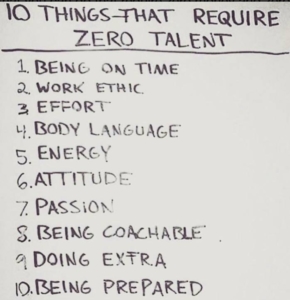
Best Sales Talent Improves Bottom Line
Best Sales Talent Improves Bottom Line
Here's is the latest exclusive Main Street Mavericks Radio Interview with Peter Cotton, Founder of Best Sales Talent, LLC
Discover how to find the best sales talent for your business.
Listen here. http://businessinnovatorsradio.com/peter-cotton-sales-tale…/
In this episode, Peter Cotton, President of Best Sales Talent, LLC, discusses how small and medium-sized companies can significantly improve their bottom line when they invest in attracting and hiring the best sales talent. As an executive recruiter, Cotton has nationwide contacts of client companies and candidates. He also has a national network of fellow recruiters who work with him to find the most outstanding candidates. Cotton and his firm act as consultants to help employers find the best sales, sales management and marketing individuals who have a reputation for building profitable business relationships with new and existing customers.
Peter is a talent acquisition professional offering management consulting services in the search and recruitment of the best sales, sales management and marketing professionals. He says that employers need to know exactly what they are looking for and what they need before they set out to hire anyone. “If they don’t know what they are looking for, they will never know if they found it,” he says. When it comes to sales talent, the profession of selling is a very specialized skill that takes time and practice to perfect. Identifying the best sales talent is a specialized skill that Peter has refined over forty years. He views sales as a consultative process of understanding customer needs and problems and then solving those customers’ problems and satisfying their needs.
Cotton operates on the basic principle of “it takes one to know one.” Before entering the recruiting profession, he was an award-winning salesman and sales manager for GAF, a Fortune 500 company. In 1977 he became the President and owner of MRI-Sales Consultants of Rhode Island, a franchised office of MRINetwork, the world’s largest executive search firm. For 37 years he operated that business which conducted search, recruitment and placement of sales, sales management and marketing talent. In 2014 he became the President and owner of Best Sales Talent, LLC in Massachusetts, where he continues with the same recruiting specialization of sales, sales management and marketing talent. Peter has more than four decades of experience in this area.
Capitalizing on his own sales management experience, Peter co-authored a book for the American Management Association, How To Be An Effective Sales Manager. Utilizing his sales and organizational management skills, while he was operating his recruiting business, Cotton became the Founder and President of the Make-A-Wish Foundation of Rhode Island. The all-volunteer Rhode Island chapter was the 75th in the U.S. and was the fastest start-up in the charity’s national history. The Make-A-Wish Foundation of Rhode Island granted more than 1,000 wishes to children with life-threatening illnesses in less than ten years.

From Authority Presswire: http://bit.ly/2rEUg6y
Online News Distribution
Peter C. Cotton, President of Best Sales Talent, LLC Reveals How The Best Sales Talent Improves The Bottom Line.
Published on May 16, 2017
Peter C. Cotton, President of Best Sales Talent, LLC reveals how employers can significantly improve their bottom line when they invest in attracting and hiring the best sales talent, with the consultation of a professional recruiter.
In an interview with Talk Show Host Joel Helfer, on Main Street Mavericks Radio, Cotton, President of Best Sales Talent, LLC, stated: “Employers need to know exactly what they are looking for and what they need before they set out to hire a top sales person. If they don’t know what they are looking for, they’ll never know if they found it.”
He noted that employers need to recognize that hiring a top-performing sales person with a very specialized skill of building profitable relationships with new and existing customers is key to a company’s future. Utilizing a recruiter can increase the odds of hiring the best sales talent, according to Cotton.
All things being equal if three sales people are selling basically the same thing in terms of product, service and price, customers will buy from the sales representative they know the best, like the best and trust the best over other sales competitors. That being the case, it’s critical to find the talent who has demonstrated that he or she can do the job and do it well.
Mistakes in hiring the wrong people to represent your firm can be very costly. It will reduce profitability, cause a loss of business, create customer dissatisfaction, and negatively impact company morale.
Cotton noted, when asked by Helfer about the hiring of sales professionals, “Fewer people are entering the sales profession for a number of reasons, not the least of which is the declining birth rate in the USA. Only about 10% of the total current work force in the USA is comprised of sales people. With the lower birth rate, there are fewer college grads, and as a result a very small percentage of them go into the profession of sales. Companies are having a tough time finding the top sales talent on their own, so they turn to recruiters who seek out sales people who are not actively looking for a new job, but who would consider a career change if it is in their best interest to do so.”
Cotton recommended that employers need to identify the top 5 or 6 performance objectives of the person they need to hire. They need to identify exactly what it will take for the new hire to be a top sales performer in the first 6-12 months of employment. If a clear-cut blueprint of expected levels of performance is not spelled out the employer will not be able to track and determine success. They also will not know if they hired the right person until they later realize that the person is not performing as well as they had hoped. That is when it is expensive to repeat the hiring process both in soft and real dollar costs.
Here’s what one of Cotton’s employer clients had to say. “Peter is the best recruiter I have worked with over the last 20+ years. He is detailed, professional and knowledgeable. One of the things I appreciate most about Peter is the research he invests during a search. While many recruiters simply pull out a file of resumes, Peter tries to match personalities, experiences and outcomes. His ability to analyze and understand our needs has lead to a better process and better outcomes. I have hired three candidates from Peter.”
David F., Vice President of Sales & Marketing Plastics Manufacturer
To listen to the entire radio interview of Peter C. Cotton, on Main Street Mavericks Radio and discover what it takes to hire the best sales talent, go here: http://businessinnovatorsradio.com/peter-cotton-sales-talent-recruiter-best-sales-talent-improves-bottom-line/
For more information on Peter C. Cotton and Best Sales Talent, LLC http://www.bestsalestalent.com
Media Contact
Company Name: Best Sales Talent, LLC
Contact Person: Peter C. Cotton
Email: pcotton@bestsalestalent.com
Phone: 401-737-3200
Country: USA
Website: http://www.bestsalestalent.com
Philosophy of Management
Quote by Clarence Francis (1888 – 1985)
Former Chairman of the Board of General Foods
See: http://bit.ly/2kifSiK
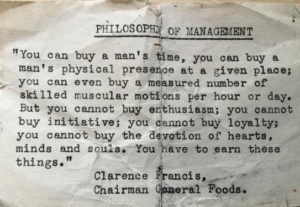
7 Reasons for High Employee Turnover

Paul Fioravanti, MBA, MPA, CAGS is a proven, experienced transformational business leader.
Having served in a variety of situations from startups, to capital raise, to turnaround and exit, Paul Fioravanti is an expert at dramatically improving the operational, financial and revenue results of product and service businesses, having served in a variety of senior level and advisory roles in publicly held and privately owned businesses.
He has extensive experience in infrastructure services (wireless, general telecom, electric, natural gas, alternative and renewable, commercial real estate, civil construction, bridge and highway), equipment rentals and sales as well as specialized transportation and logistics, manufacturing and technology.
He is well educated and well versed in a variety of business strategies and creates and executes tactical plans to dramatically improve the results of an organization, either as a C-level leader or as a key advisor.
Paul is also an excellent writer and a good friend. The article below is a recent posting of his on LinkedIn Pulse.
7 Reasons for High Employee Turnover
by Paul Fiorvanti, MBA, MPA, CAGS
In order for a galaxy to shine, it needs plenty of stars.
As a business owner, keeping a reliable staff that you trust is important to the overall success of your business. After all, those employees will typically run your day-to-day operations and interact with your customers. When those employees don’t last very long, your business can suffer, and nothing is more frustrating than not knowing why or how to fix it. When you’re experiencing high turnover rates, it’s important to determine why your employees are leaving so that you can rectify the situation and start building lasting relationships with your employees. Here are seven common reasons for high employee turnover:
1. Overwhelming Workloads (Work Fit)
You need to get things accomplished, and you also need to meet your bottom line. But if you’re putting too much work on your employees’ plates, that could be a reason that they’re leaving. People aren’t machines, so make sure you’ve got enough employees to run operations efficiently and effectively. Don’t make your budget so tight that you’re losing quality employees over it.
2. Money Talks (Compensation Fit)
Realistically, finances are a major motivator for employees to jump ship and consider working for another company. At the end of the day, you have to consider that your employees are working for a reason, and it’s likely not for fun. They need a paycheck, and if someone is willing to hire them to do the same work (or less) for higher pay, they’re going to take advantage of that opportunity. Make sure you’re paying your employees appropriately and fairly.
3. Horrible Bosses (Boss Fit)
We don’t mean the movie. If you have someone in a management position who is consistently losing team members, the problem may lie within that person and not your company. It might be time to evaluate his or her managerial skills if they seem to be the common denominator with high employee turnover.
4. No Room For Growth (Stagnation Ceiling)
If employees don’t see any opportunities to advance, they may choose to move on to a new company. Make sure employees know that there are development opportunities and ways to advance professionally. Even if there isn’t a higher position within the company, make sure to invest in development and professional growth opportunities for your employees. If employees can’t grow, they won’t stay.
5. No Recognition (Taken for Granted)
A high turnover rate can be a result of employees feeling devalued. If they feel like they aren’t respected or that their employer is taking advantage of their skills, knowledge, or time, they may seek employment elsewhere. Let your employees know that their work is valued and appreciated.
6. Toxic Culture (Toxicity City DownTown)
Nothing is worse than working in a depressing, bitter, or negative work environment. Make sure to check the pulse of your employees to see if they’re just clocking in and checking out or if they’re happy and content with their work. A toxic culture is a surefire reason employees will leave.
7. Boredom/Not in the Right Role (Job Fit)
If employees get bored or aren’t in the right role, they will start considering other job opportunities. Employees want to be challenged and they want to be able to put their knowledge and skill set to use. If they’re not in a role that does that, they willinevitably become bored of their work and feel like they’re wasting their time. It won’t be long before they move on.
Overall, any one of these reasons, and certainly a combination thereof, can result in high employee turnover. Keeping your employees happy and satisfied should be a priority as an employer; otherwise, you just might face high employee turnover, which will negatively affect your bottom line.
Article from a forthcoming feature on the QORVAL blog which can be found at https://www.qorval.com/blog
Other informative, and sometimes humorous articles by Paul Fiorvanti can be found at:
http://bit.ly/2bXZ9xS
Innovation Killer Organization Chart
I don't know who created this, but as an organizational chart it certainly well-describes many companies.
